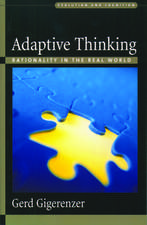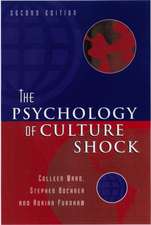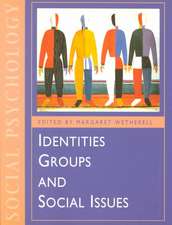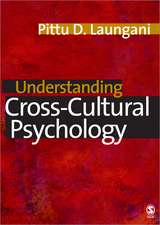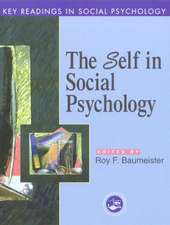Psychology of Liberation: Theory and Applications: Peace Psychology Book Series
Editat de Maritza Montero, Christopher C. Sonnen Limba Engleză Paperback – 8 sep 2011
In these chapters, liberation is presented as both an ongoing process and a core dimension of wellbeing, entailing the reconstruction of social identity and the transformation of all parties involved, both oppressed and oppressors. It also expands the social consciousness of professionals, bringing more profound meaning to practice and enhancing related areas such as peace psychology, as shown in articles such as these:
- Philippines: the role of liberation movements in the transition to democracy.
- Venezuela: liberation psychology as a therapeutic intervention with street youth.
- South Africa: the movement for representational knowledge.
- Muslim world: religion, the state, and the gendering of human rights.
- Ireland: linking personal and political development.
- Australia: addressing issues of racism, identity, and immigration.
- Colombia: building cultures of peace from the devastation of war.
| Toate formatele și edițiile | Preț | Express |
|---|---|---|
| Paperback (1) | 1381.26 lei 6-8 săpt. | |
| Springer – 8 sep 2011 | 1381.26 lei 6-8 săpt. | |
| Hardback (1) | 1387.43 lei 6-8 săpt. | |
| Springer – 10 mar 2009 | 1387.43 lei 6-8 săpt. |
Din seria Peace Psychology Book Series
- 18%
 Preț: 779.26 lei
Preț: 779.26 lei -
 Preț: 361.07 lei
Preț: 361.07 lei - 15%
 Preț: 639.25 lei
Preț: 639.25 lei - 18%
 Preț: 788.54 lei
Preț: 788.54 lei - 15%
 Preț: 699.28 lei
Preț: 699.28 lei - 15%
 Preț: 646.62 lei
Preț: 646.62 lei - 18%
 Preț: 1690.13 lei
Preț: 1690.13 lei - 15%
 Preț: 645.28 lei
Preț: 645.28 lei - 24%
 Preț: 1044.87 lei
Preț: 1044.87 lei - 18%
 Preț: 945.14 lei
Preț: 945.14 lei - 15%
 Preț: 649.54 lei
Preț: 649.54 lei -
 Preț: 386.39 lei
Preț: 386.39 lei - 15%
 Preț: 697.82 lei
Preț: 697.82 lei - 15%
 Preț: 591.14 lei
Preț: 591.14 lei - 18%
 Preț: 1222.94 lei
Preț: 1222.94 lei - 15%
 Preț: 644.82 lei
Preț: 644.82 lei - 15%
 Preț: 649.22 lei
Preț: 649.22 lei - 15%
 Preț: 697.65 lei
Preț: 697.65 lei -
 Preț: 388.72 lei
Preț: 388.72 lei - 15%
 Preț: 647.08 lei
Preț: 647.08 lei - 24%
 Preț: 967.03 lei
Preț: 967.03 lei - 15%
 Preț: 638.89 lei
Preț: 638.89 lei - 15%
 Preț: 650.37 lei
Preț: 650.37 lei - 18%
 Preț: 733.15 lei
Preț: 733.15 lei -
 Preț: 398.74 lei
Preț: 398.74 lei - 15%
 Preț: 644.30 lei
Preț: 644.30 lei - 18%
 Preț: 1116.57 lei
Preț: 1116.57 lei -
 Preț: 365.05 lei
Preț: 365.05 lei - 15%
 Preț: 643.99 lei
Preț: 643.99 lei - 18%
 Preț: 1116.26 lei
Preț: 1116.26 lei - 18%
 Preț: 1595.75 lei
Preț: 1595.75 lei - 18%
 Preț: 779.89 lei
Preț: 779.89 lei
Preț: 1381.26 lei
Preț vechi: 1684.46 lei
-18% Nou
Puncte Express: 2072
Preț estimativ în valută:
264.31€ • 282.63$ • 220.37£
264.31€ • 282.63$ • 220.37£
Carte tipărită la comandă
Livrare economică 17 aprilie-01 mai
Preluare comenzi: 021 569.72.76
Specificații
ISBN-13: 9781441927613
ISBN-10: 1441927611
Pagini: 320
Ilustrații: XVI, 303 p. 5 illus.
Dimensiuni: 155 x 235 x 17 mm
Greutate: 0.45 kg
Ediția:2009
Editura: Springer
Colecția Springer
Seria Peace Psychology Book Series
Locul publicării:New York, NY, United States
ISBN-10: 1441927611
Pagini: 320
Ilustrații: XVI, 303 p. 5 illus.
Dimensiuni: 155 x 235 x 17 mm
Greutate: 0.45 kg
Ediția:2009
Editura: Springer
Colecția Springer
Seria Peace Psychology Book Series
Locul publicării:New York, NY, United States
Public țintă
Professional/practitionerCuprins
Praxis and Liberation in the Context of Latin American Theory.- Ignacio Martín-Baró’s Social Psychology of Liberation: Situated Knowledge and Critical Commitment Against Objectivism.- Towards a Really Social Psychology: Liberation Psychology Beyond Latin America.- Methods for Liberation: Critical Consciousness in Action.- Liberating South African Psychology: The Legacy of Racism and the Pursuit of Representative Knowledge Production.- Immigration and Identity: The Ongoing Struggles for Liberation.- Reflections on Liberation Psychology in Action in an Irish Context.- Liberation Movements During Democratic Transition: Positioning with the Changing State.- The Game of War: The Liberating Action of Games in a Context of Political Polarization.- “Liberating” the Hijab.- Development of Historical Memory as a Psychosocial Recovery Process.- Psychological Accompaniment: Construction of Cultures of Peace Among a Community Affected by War.- Liberation Psychology on the Street: Working with Youngsters Who have Lived on the Streets of Caracas.- New Challenges for the Psychology of Liberation: Building Frameworks for Social Coexistence.- Gendering Peace and Liberation: A Participatory-Action Approach to Critical Consciousness Acquisition Among Women in a Marginalized Neighborhood.
Textul de pe ultima copertă
Since the mid-1980s, the psychology of liberation movement has been a catalyst for collective and individual change in communities throughout Latin America, and beyond; and recent political developments are making its powerful, transformative ideas more relevant than ever before. Psychology of Liberation: Theory and Applications updates the activist frameworks developed by Ignacio Martin-Baro and Paulo Freire with compelling stories from the frontlines of conflict in the developing and developed worlds, as social science and psychological practice are allied with struggles for peace, justice, and equality.
In these chapters, liberation is presented as both an ongoing process and a core dimension of wellbeing, entailing the reconstruction of social identity and the transformation of all parties involved, both oppressed and oppressors. It also expands the social consciousness of professionals, bringing more profound meaning to practice and enhancing related areas such as peace psychology, as shown in articles such as these:
In these chapters, liberation is presented as both an ongoing process and a core dimension of wellbeing, entailing the reconstruction of social identity and the transformation of all parties involved, both oppressed and oppressors. It also expands the social consciousness of professionals, bringing more profound meaning to practice and enhancing related areas such as peace psychology, as shown in articles such as these:
- Philippines: the role of liberation movements in the transition to democracy.
- Venezuela: liberation psychology as a therapeutic intervention with street youth.
- South Africa: the movement for representational knowledge.
- Muslim world: religion, the state, and the gendering of human rights.
- Ireland: linking personal and political development.
- Australia: addressing issues of racism, identity, and immigration.
- Colombia: building cultures of peace from the devastation of war.
Caracteristici
Influence and adoption can be seen in the kind of community social psychology developed in Latin America Encapsulates terms of the epistemological, philosophical, and methodological traditions that have informed the development of liberation praxis Includes supplementary material: sn.pub/extras


